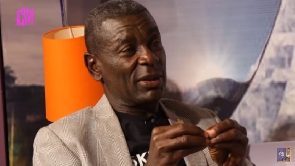Business News of Wednesday, 13 February 2019
Source: www.ghanaweb.com
UT Bank collapse: Blame stakeholders, not the government – Kofi Amoabeng
President of UT Group of companies, Prince Kofi Amoabeng has admitted that stakeholders of UT Bank are to be held responsible for the collapse of the bank and not the government of Ghana.
"When it comes to the closure of UT Bank, the stakeholders should be held responsible for it before holding the government responsible" he stated.
According to him a lot of things happened to the point that he had to retire early from managing his company which eventually led to the unfortunate closure of the bank.
Speaking on the ‘KSM Show’ Mr Amoabeng indicated that there was some rift between himself, his partner and some shareholders which split the board of the bank.
He stressed that UT Bank lost its culture and mission completely.
“The UT that we had, thus to do loans in 48 hours requires a great culture of each one supporting each other because one had to bend the rules. Once the culture was there to support the mission we were successful,” he explained.
He noted that the fast-rising of UT Bank attracted a lot of people who came in to dilute it and didn’t bother to learn how UT became successful.
“They came with their own ideas because they felt they were bankers and the UT people were not bankers so they came to teach us but they were supposed to learn what makes us special and add their bit to it,” he told KSM.
“I blame myself, I blame my board, my partner, some of the shareholders like IFC whom we had issues with, management must take some of the blame, the staff some of them started colluding and compromising themselves. In the long round what happened is that we have failed our company then we were at the mercy of the government,” Mr Amoabeng concealed.
Background
UT Bank and Capital Bank were deeply insolvent, meaning that their liabilities exceeded their assets, putting them in a position not to be able to meet their obligations as and when they fell due.
“Despite repeated agreements between the Bank of Ghana and UT Bank and Capital Bank to implement an action plan to address these significant shortfalls, the owners and managers of UT Bank and Capital Bank were unable to increase the capital of the banks to address the insolvency,” BoG statement said.
The BoG indicated that to protect customers, the BoG decided to revoke the licenses of UT Bank and Capital Bank under a Purchase and Assumption transaction.
Their licenses were revoked and at the same time, the BoG approved a Purchase and Assumption agreement, which allows GCB Bank to take over all deposit liabilities and selected assets of both UT Bank and Capital Bank.
These actions according to the BoG are in line with the provisions of section 123 of the Banks and Specialised Deposit-Taking Institutions (SDIs) Act, 2016 (Act 930).











